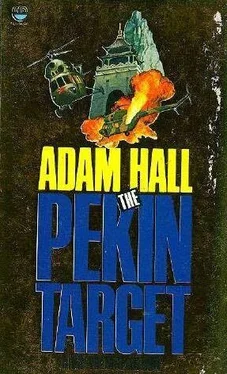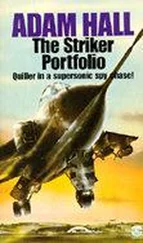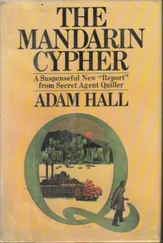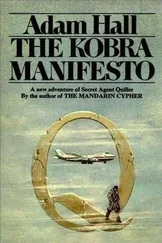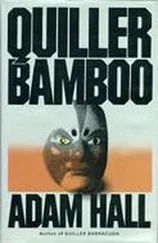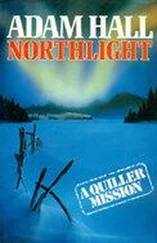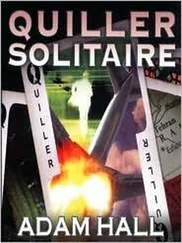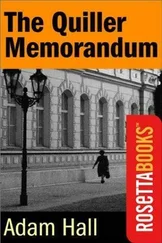"You told him that, did you?"
"I had to, for Christ's sake"
"Just wanted to know," he said quietly.
"Look, he wouldn't have opened up if I hadn't told him that much, Christ, I could've been anyone, can't you see that?"
"Everything's perfectly all right," he said, and I sat back and started cooling in my own sweat. Nerves, that was all; paranoia; it'd been a rough four days.
"Bloody Ferris," I said. "You know what they say about you in the Caff? They say you strangle mice."
He gave that thin, rustling laugh of his, like a snake shedding its skin, and we pulled into the Embassy yard in Chung-dong Street and got out of the car and went into the building and up the stairs to a room on the second floor, empty except for some garden furniture and a cardboard box of paper cups and a projection screen hanging at an angle against the wall.
Ferris shut the door and I got out the map.
"You mean there's no approach by road?"
"The nearest road is this one, twenty miles away. All you've got are mule tracks."
Ferris looked at the larger map he'd got from the night clerk. "He pinpointed the monastery here?"
"Yes."
"He was absolutely certain?"
"He said it was his home for fifteen years."
"We're depending," Ferris said, "on the word of one man. A blind man."
"He had his sight up till three years ago."
"How did he lose it?"
"I don't know. But I asked him. He said it was 'karma'. And I realised we'd have to depend on his word alone; that's why it took an hour and a half to get it all clear; and I'm satisfied. He knows the mountains, the terrain and the layout of the monastery."
"You say it's in ruins now?"
"Partly. There was a rock fall, three years ago, and the monks had to leave."
"That was when he was blinded?"
"He told me it happened three years ago, only that."
"You think Tung did it? Or had it done?"
"That was my impression. I'd say their paths had crossed."
There was a knock on the door and Ferris went over and unlocked it. The night clerk looked in.
"I've got the cook out of bed." He was a young chap with a long face and inquisitive eyes; or perhaps they hadn't looked so inquisitive before we'd come in here and asked for food and maps and a camp bed and absolute privacy; he didn't know who we were but he knew Ferris must be persona grata with HE. His eyes were darting from our faces to the maps all over the floor. "Bacon and eggs and toast, was that right?"
"And coffee," Ferris said.
"Okie-doke. Coming up."
That was at 11:25.
I'd slept for an hour by the time Ferris came back from the cypher room, his face perfectly expressionless. He told me they'd exchanged fifteen signals so far, and that London was «open-minded». Two people from the Bureau had gone across to the Foreign Office to sit at the radio, and ten minutes ago Croder had come on the air.
"Why doesn't he make up his mind?" I asked Ferris.
"He's in the process of doing that." Cool tone: rebuke. He was getting fed up with his executive needling Control all the time; I could see his point so I shut up. "They want to know," he said in a moment, "what the chances are of putting a chopper down in that area."
"I asked the priest. He said the only place you can put down a chopper in that region is at the monastery itself; the surrounding terrain is nothing but peaks and crags."
He got onto the floor with the maps again. "We're going to assume that if Tung is using this place as a refuge it's liable to be more like a fort than a monastery."
"Thank you. That'll give me a chance."
"You wouldn't want to try going in with a chopper?"
That was obviously an official question and for the record.
"No. There's only one way I'm prepared to go in, as I told you."
He sat there cross-legged like a thin sandy Buddha. "Why did he go there? Why did he need refuge?"
Some of these questions were passed on from London; some were coming into his mind as the sessions progressed.
"The priest didn't say."
"But you asked him?"
"Yes."
"You think he didn't know?"
"I think he knew, but wasn't saying."
"What are your thoughts on that?"
"I'd say that Tung is under some kind of pressure; that he's running his operation by remote control, using a radio."
"A defensive operation?"
"I don't think there's anything defensive about assassinating a secretary of state and an ambassador."
"So what do you think?"
"He could be running his operation this way to avoid the danger of getting hit."
"You think if he got hit, personally, it would destroy the operation?"
"Yes. I think he's running a cell of out-and-out fanatics, totally loyal, totally obedient, riders of the divine wind. They're the type who break if the leader breaks."
He went on questioning, with intervals of meditative silence. I did the best I could, but it wasn't easy because there weren't too many facts: I was bringing out feelings, recalling things that Li-fei had told me in the Chonju Hotel, and at her house, and in the car, and at the temple, when I'd listened half to the things she wasn't saying, and taking more notice of them than of the things she was. I had also listened to the silences of the priest, unconsciously measuring their length, knowing that the longer he was silent the more he was troubled by the questions I'd asked him through Li-fei.
"You think the priest would like to see Tung dead?"
"What?" I had to think about that. "Yes. But not in the way we'd mean it, in the West. He'd feel personally relieved to see Tung cleansed of his earthly sins; that was a phrase he used, if Li-fei got the translation right. And the kind of sins he was talking about can only be atoned for by death."
"But not death as punishment?"
"Death as atonement."
Then there was a knock on the door again and the night clerk put his long face in the gap. "Kirby wants you, sir." Kirby was the cypher clerk and this was another signal.
00:46 hours, and already morning.
"They're in contact," Ferris said, "with the CIA."
"Because of the American Ambassador?"
He didn't answer that. "I just want you to know there's now an American connection. Are you still prepared to go in there?"
"To the monastery?"
"Yes."
"If it's my way, by a night drop."
Ferris was sitting on the floor again with the maps in front of him. He slotted his long fingers together and didn't look up as he told me: "Control says you can go in, on his terms."
Dead end. Sixteen signals, leading us to a dead end. Because I knew Croder. He wouldn't have made this proviso if they were the kind of terms I could accept. Croder is God: he giveth and he taketh away.
"What terms?"
"That you take someone with you as a guide."
I said no.
01:32.
"I always work solo," I said. "You know that."
"This time it's too critical."
"Only the landing. After I'm down I don't want anyone with me. They'd get in my way."
"You won't even find your way, without a guide."
"Look, I did a night drop into the Sahara and there was no problem. I was alone."
"This isn't the Sahara."
"Croder doesn't trust me, that's all. He never has."
Ferris began whistling quietly, which was like anyone else kicking the door down. "They're putting everything on this one venture. If you take a guide with you it's going to decrease the risk of your getting lost. All the guide has to do is get you to the monastery — to within sight of it. Then you go in alone."
"It's the drop I'm worried about. Two chutes are more visible than one: you're doubling the risk, not decreasing it."
"You're dropping by night."
"By moonlight."
"Over completely unknown territory."
"With a compass."
Читать дальше
